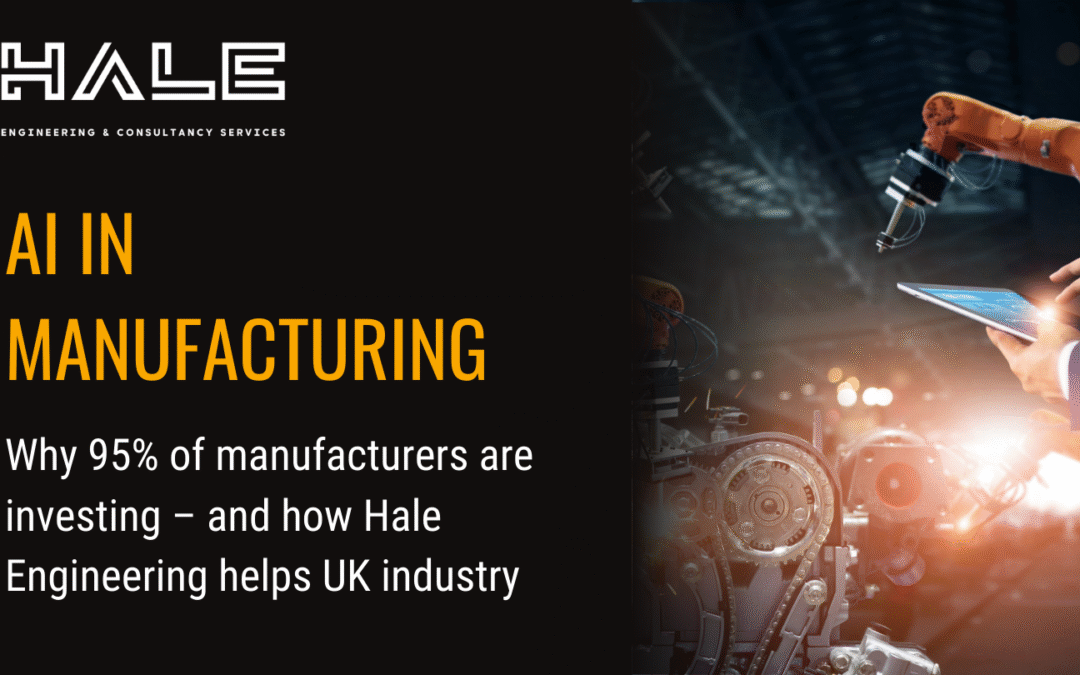Artificial intelligence is no longer a future vision—it’s already transforming how factories operate. According to the State of Smart Manufacturing Report by Rockwell Automation, 95% of manufacturers are investing in AI in manufacturing or planning to do so within five years.
For UK manufacturers, this raises a crucial challenge: how do you take AI from a global headline and apply it safely, compliantly, and effectively on your own factory floor? That’s where hale engineering comes in.
AI in manufacturing is no longer optional
The Rockwell report shows how quickly the shift is happening. More than four out of five manufacturers are accelerating digital transformation. Cybersecurity has risen to the top of the risk agenda, with nearly half planning to use AI in manufacturing to strengthen defences. And quality control has emerged as the most common use case, with half of the respondents applying AI to protect consistency and reduce waste.
At Hale Engineering, we see the same pressures playing out in the UK. Production managers are dealing with legacy control systems that don’t integrate easily with AI tools. Safety officers are under pressure to ensure new automation doesn’t compromise compliance. And engineering teams are stretched thin, struggling to bridge the skills gap as advanced systems become the new normal.
Where Hale Engineering makes AI practical
AI in manufacturing only delivers value when the underlying systems are designed, programmed, and maintained with precision. That is where Hale Engineering brings its expertise.
We modernise PLC, HMI, and SCADA platforms so that data is accurate and usable by AI-driven applications. We ensure PUWER-compliant safety systems remain intact even as new layers of automation are added. And we design bespoke control panels and electrical solutions that are built for long-term reliability, not short-term fixes.
This hands-on approach turns AI from a boardroom idea into a factory-floor reality. For a plant manager, that means fewer unplanned stoppages. For an automation lead, it means clean integration with platforms like Siemens and Allen-Bradley. For compliance officers, it means peace of mind that regulatory requirements are not compromised in the rush to adopt smart manufacturing.
Who needs to act now?
For many UK sites, the pressure to embrace AI is already here. Plant managers are tasked with cutting downtime while delivering more output. Operations directors need their systems to be future-ready without risking current performance. Compliance officers have to approve every change against strict standards.
These are the people who benefit most from partnering with Hale Engineering. We bring decades of control and automation expertise to ensure that when AI in manufacturing is adopted, it actually strengthens performance rather than creating new risks.
Take the next step
With 95% of global manufacturers already investing in AI, the competitive advantage goes to those who act quickly and get it right the first time. Hale Engineering is here to bridge the gap between global AI ambitions and the reality of UK plants, utilities, and production lines.
This article draws on insights from Rockwell Automation’s State of Smart Manufacturing Report 2025

